555: Property Insights for UK Investors - Key Trends
12-04-2015

Key Trends: Property Investors need to consider long term trends when they make investments, to maximise returns and minimize risks and excessive financial exposure. 2015 has been a pivotal year looking at property investment trends:
SNP Killed Labour: The gains in SNP seats in Scotland has rendered it almost impossible for Labour to win a majority in the House of Commons and hence this has let to Tories in for the long term.
Labour Split: The Labour party has split into two warring entities there seems little chance the centre and left of the party ever getting on with each other again. It looks like the 1970s all over again. There is the remnants of New Labour and the Socialists supported by the Unions. Very messy.
Tories Target Buy-To-Let: The Tories have started targeting small-medium sized buy to let investors with gigantic tax hikes and stamp duty charges that will stifle rental property supply in London and southern England for the long term. Second homes and holiday homes have also been hit. This will make borrowing to purchase buy-to-let property far more difficult in the future and dissuade new entrants to the buy-to-let business. This could be a massive miscalculation by the Tories since tax revenue increases are not likely to be that big and it will worsen the housing crisis dramatically.
Private Sector Boost: The Tory government will continue to boost the private sector and attempt to reduce the public sector spending this will adversely affect economies in the north, rural areas and areas far from London.
Oil Prices Boost: The low oil prices will boost the financial services sector primarily London (also in some respects Manchester, Leeds and Bristol) and lead to growing economies in these cities.
Booming Population: A huge increase in immigration and few people leaving the UK, plus the booming population from higher fertility rates mainly from overseas nationals will boost demand for rental and homes to purchase.
Building Dries Up: Lack of building will continue because of:
· Cumbersome, expensive and time consuming planning process
· Lack of building land
· No building on Green Belts, Areas of Outstanding Natural Beauty and National Parks
· High stamp duty
· High taxes discouraging buy-to-let investment
· Nimby behaviours where local councillors stop new development to win votes its popular to stop new building
· Lack of finance for builders banks see it as a very risky business
· Expensive labour and raw materials costs
The level of building should be 340,000 homes a year mainly 3 bedroom houses. However, we have 120,000 homes being built a year, mainly 1-2 bedroom flats. They are also like rabbit hutches tiny when compared to mainland European or US home sizes. The supply-demand imbalance has got more extreme through the years. Stamp duty costs have discouraged people from buying and selling the housing market is almost stagnant and this has driven prices up and supply has dwindled to crisis low levels. This will not improve in the next five years in our opinion.
Employment: Meanwhile unemployment continues to drop as people shift from public sector employment to private sector employment, and social hand-outs are harder to attain. Its become more difficult for people to sit back home and claim benefits without trying to seek work. And there seems to be work, albeit often low paid, out there. The Tories will make sure unemployment remains low.
Trends: So what o all the above trends mean for the property investors?
Property Prices: Firstly property prices will continue to rise around 5% a year for the next five years assuming there is no recession and financial crisis. Property prices will rise fastest in southern England and close to London.
Rents: Rents will rise sharply by 5-8% a year for the next 5 years particularly in London as the tax increases bite in just the area where the biggest crisis is the unintended consequence of a pathetically thought out fiscal policy.
Boom Areas: Demand for property will be the highest in cities in southern England and London. This will also be where the population is growing fastest and business is growing fastest. The canny property investor should target high business growth areas only that will benefit from Tory policies in the next 5-10 years. These cities and areas are the following
· London
· Oxford
· Cambridge
· Bristol
· Southampton
· Brighton
· Areas within a 50 mile radius of London
In London itself, we expect property prices in the range £400,000-£700,000 to rise fastest up towards the £1 million mark. Particular growth areas will be again where business is booming alomg with the population of well-educated young people hence hotspot will be:
· Shoreditch
· Farringdon
· Paddington
· Acton
· Ealing
· Leytonstone
· Stratford
· London Bridge Elephant & Castle
· Bow Church
· Lewisham-Greenwich-New Cross
· Earls Court
Further out there will be suburbs benenfiting from Crossrail like:
· Shenfield
· Abbey Wood
· Maidenhead
· Forest Gate
· West Drayton
Other cities and towns that should see prices rising are:
· Bristol
· Southampton
· Portsmouth
· Winchester
· Bedford
· Reading
· Ipswich
· Colchester
· Canterbury
· Gravesend-Ebbsfleet-Swanscombe-Dartford
· Croydon
A ripple will also fan out along high speed rail lines to places like:
· Leicester
· Retford-Grantham
Central London: The prime London property areas will continue to rise though not as rapidly as in the last ten years. Lower prices areas will start to catch up a bit. Some popular area like Richmond, Kew, Highgate, Wimbledon, Putney and Clapham will continue to see strong p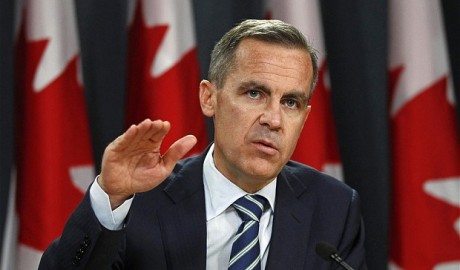 rice rises as rich people priced out of Chelsea, Belgravia, Mayfair and Kensington purchase properties in these Victorian areas.
rice rises as rich people priced out of Chelsea, Belgravia, Mayfair and Kensington purchase properties in these Victorian areas.
The Bank of England policy is critical to the arguments for higher or lower property prices we believe the following:
The BoE will want to keep inflation going at all cost because the debt is so high it needs inflating away a never ending cycle. They cannot afford to let deflation set in. This is why they have kept interest rates at record lows clobbering savers in the process.
If deflation hits, the BoE will just start printing more money and this will lead to higher house prices. The low interest rates also lead to high house prices.
Our central view, and we might be wrong on this, is that the UK is a mature economy with aging population and needs low interest rates to encourage investment and create inflation. The BoE does not care about savers, they only care about consumers and investors that want to spend and borrow and drive the economy forwards creating inflation. This has created dramatically rising property-asset prices. This looks likely to continue, especially if oil prices stay low.
International Scene Oil Prices: Oil prices crash from $110/bbl to $40/bbl from Aug 2014 to May 2015 and have stayed at this level since. This has suppressed inflation dramaticall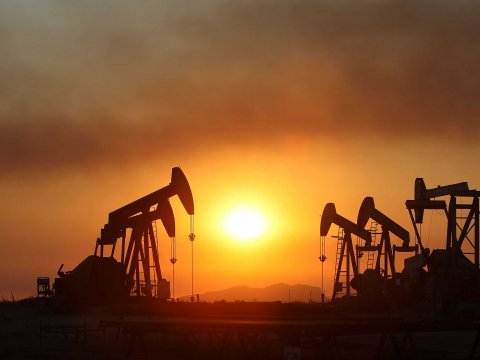 y indeed, inflation is running at 0% whilst wages rises are running at about 2.5% - hence peoples disposable incomes are rising. This means they can borrow more. This has been happening now for 18 months and should support property prices into 2016. The other impact of low oil prices is of course that the low inflation levels lead the BoE to keep interest rates at record lows. The low oil prices have been caused by a number of factors:
y indeed, inflation is running at 0% whilst wages rises are running at about 2.5% - hence peoples disposable incomes are rising. This means they can borrow more. This has been happening now for 18 months and should support property prices into 2016. The other impact of low oil prices is of course that the low inflation levels lead the BoE to keep interest rates at record lows. The low oil prices have been caused by a number of factors:
· Shale Oil production increase of 5 million bbls/day in the last 5 years
· Reducing Chinese oil demand as GDP growth has slowed from 12% to 5% in the last 4 years as the economy has matured
· Saudi Arabia and Russia both pumping at maximum rates record levels
· The threat of an increase in Iranian oil production once sanctions are lifted in 2016
· Increasing production from Iraq despite the war in the north of the country
· Low demand in western countries as people drive less and conserve more
Underinvestment: There has been a gigantic under-investment in the oil-gas business for 18 months now most projects have been cancelled or deferred, however, the experts believe the US can turn on their oil production pretty quickly if required and this will keep a lid on oil prices. Looking at it from all the angles, after the OPEC meet decided 4 Dec 2015 that everyone would continue to pump at a maximum rate going for market share they we see low oil prices for at least another 12-18 months. This is very relevant for property investor because it means:
· Low inflation in western oil importing nations
· Low interest rates in western oil importing nations
· A massive financial boost to oil importing nations like Spain, Italy, Greece, Germany, Sweden, Denmark and France. The UK will also be positively impacted except for Scotland (Aberdeen).
Crashing Oil Economies: As the oil exporting nations suffer from low oil prices there currencies will crash and their inflation levels will rise sharply as imported goods become far more expensive. This will create recessions in these countries, as deficits rise. Hence property investors should avoid at all cost at this time property investment in these unstable economies namely: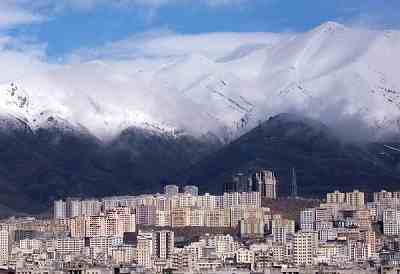
· Iran
· Iraq
· Saudi Arabia
· Venezuela
· Russia
· Algeria
· Libya
· Brazil
· Brunei
· Oman
· Syria
· UAE
And to a lesser extent, Qatar, Kuwait, Bahrain, Columbia and Norway. Key to this new world of low oil prices is the currency crashing in economies reliant on oil exports, and conversely the string dollar as the US benefits from both low oil prices and its new oil production and reserves developed in the last 5 years.
Cheap Oil in the USA: Because the USA has found so much oil, and low oil prices also stimulate their economy the US dollar will stay strong and this will adversely affect the countries above, leading to high inflation - and hyperinflation in some socialist countries like Venezuela. Brazil will also be adversely affected since Petrobras has borrowed $150 billion and many projects are not economic at $40/bbl.
US Boom: Property investors are better off buying real estate in Miami, San Francisco, Monaco, London and Luxembourg western cities that thrive with a strong dollar, low oil prices and expending dollar based financial services and high-tech businesses. The USA looks particularly attractive at this time because the USA: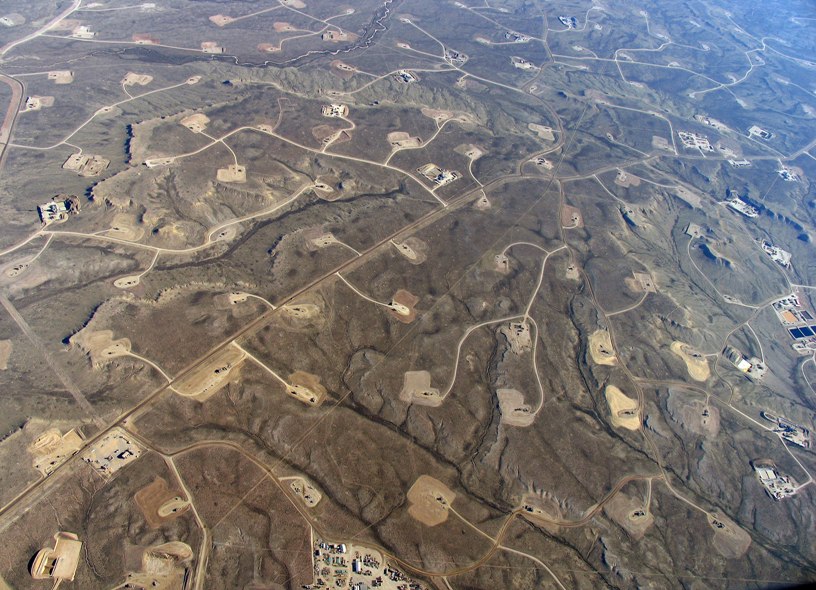
· is almost self-sufficient in oil production
· is self-sufficient in gas and coal production
· is self-sufficient in food production
· is very secure (albeit gun crime is a problem)
· these oil-gas reserves help boost the dollar value they can print as much as they like because its now backed by oil
· the strong dollar leads to low inflation, along with the oil production this means interest rates can stay low
· the low interest rates make service debt cheaper and will lead to real estate prices rising
· in rapidly expanding population centres in the USA with booming business and pressure on land for building, we expect real estate prices to rise e.g. Miami, Phoenix, Las Vegas, San Francisco, New York, Los Angeles, Denver, Chicago.
Middle East Crash: When oil prices are low, financial services and high-tech do better as western consumer economies boom. Best to avoid all the oil exporting nations at this ti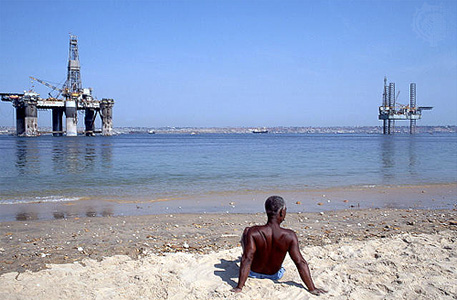 me since there is a high chance their economies will implode in the next few years and this it radicalisation and security and/or wars break out. Ask yourself, how long can oil exporting nations that need $100/bbl to balance their books keep giving out social handouts (e.g. free electricity, homes, job creation scheme, subsidized fuel) when oil prices are languishing at $40/bbl. What happens when the young population has not work, are bored in the desert. The whole of the Middle East at $40/bbl looks are very insecure place and we firmly believe the OPEC strategy of pumping like mad will backfire as their economies crash into recession and currencies crises break out in 2016. The Middle East security problems are likely only to get worse.
me since there is a high chance their economies will implode in the next few years and this it radicalisation and security and/or wars break out. Ask yourself, how long can oil exporting nations that need $100/bbl to balance their books keep giving out social handouts (e.g. free electricity, homes, job creation scheme, subsidized fuel) when oil prices are languishing at $40/bbl. What happens when the young population has not work, are bored in the desert. The whole of the Middle East at $40/bbl looks are very insecure place and we firmly believe the OPEC strategy of pumping like mad will backfire as their economies crash into recession and currencies crises break out in 2016. The Middle East security problems are likely only to get worse.
Aberdeen Crash: If we shift our focus back to the UK one can see about the worse place to invest at the moment is Aberdeen which will be a in a steep recession in 2016 as the North Sea oil-gas business collapses under the weight of three successive tax hikes by two g overnments and the oil price crash. The government has killed the industry off for good it would seem despite oil prices crashing from $110/bbl to $40/bbl no industry support has been forthcoming and Aberdeen property prices will soon crash like they did in 1987 and to a lesser extent in 1999. The lack of government support has been frightening and its too late to savethis economy now in NE Scotland. Oil revenues have collapsed to only 10% of 2012 levels yes, the government killed the goose that lay the golden eggs. A great shame. The low oil prices also make Scotlands finances a lot more precarious since the Scottish economy relies on oil revenues and the oil business so much, particularly in the NE of Scotland.
overnments and the oil price crash. The government has killed the industry off for good it would seem despite oil prices crashing from $110/bbl to $40/bbl no industry support has been forthcoming and Aberdeen property prices will soon crash like they did in 1987 and to a lesser extent in 1999. The lack of government support has been frightening and its too late to savethis economy now in NE Scotland. Oil revenues have collapsed to only 10% of 2012 levels yes, the government killed the goose that lay the golden eggs. A great shame. The low oil prices also make Scotlands finances a lot more precarious since the Scottish economy relies on oil revenues and the oil business so much, particularly in the NE of Scotland.
We hope you have found this Special Report insightful and it helps give you some good pointers for where the best returns will be in the next few years, looking at the trends developing in the UK and globally.

